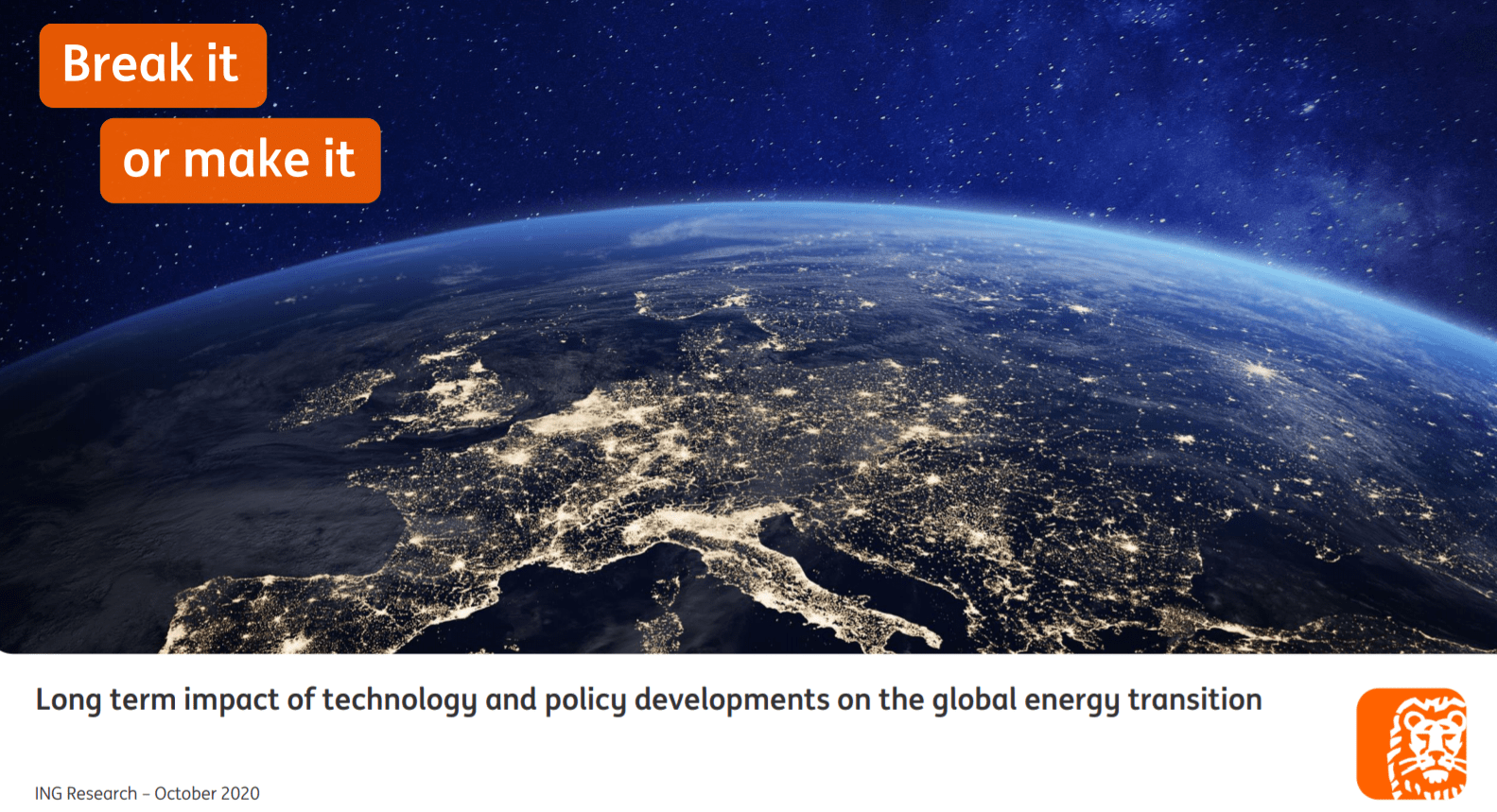Covid 19 reduces fossil fuel demand for the wrong reasons
Fossil fuel use is the main cause of global greenhouse gas emissions that contribute to global warming. Therefore, the use of fossil fuels needs to be reduced tremendously to reach the Paris Agreement goals of keeping global warming to well below 2 C and to pursue efforts to limit the temperature increase to 1.5 C.
In the short term, the Covid 19 pandemic is doing just that, causing the strongest drop in fossil fuel demand in history. But Covid 19 is achieving this on the wrong premise, by temporarily shrinking the global economy as a result of government lockdown measures. Although significant, this in itself makes little difference to the world’s efforts to progress towards the Paris Agreement goals. In fact, it may make things worse by lowering fossil fuel and electricity prices thereby worsening the business case for renewables.
Technology and policy developments determine the future of decarbonisation
We see the long term impact of Covid 19 on fossil fuel use dependent on how it will impact investments in green technology and policy support for the energy transition. But forecasting technology and policy developments is notoriously difficult. That is why ING Research started scenario planning in 2017 to better understand trends that drive the energy transition in energy-intensive sectors.
Energy scenario planning
In this publication we look to share our experience and knowledge on scenario planning we have carried out.
Firstly, our report explains our scenarios and how they are built, before considering the impact of Covid 19 on our scenario outcomes.
Secondly, we present the impact of our scenarios on transportation, manufacturing, the built environment and the power sector. Lastly, we explore the implications for fossil fuel demand.
The aim of this report is to help corporate decision-makers better understand the factors that drive opportunities and risks in the global energy transition. That knowledge helps to make better investment and lending decisions and to minimise the risk of stranded assets. It also provides decision-makers guidance on whether to invest in mitigation or adaptation strategies. And here, we also urge our readers: support strong policy intervention, as that is what is needed to make low carbon investments profitable. It is the only way to prevent runaway climate change.


